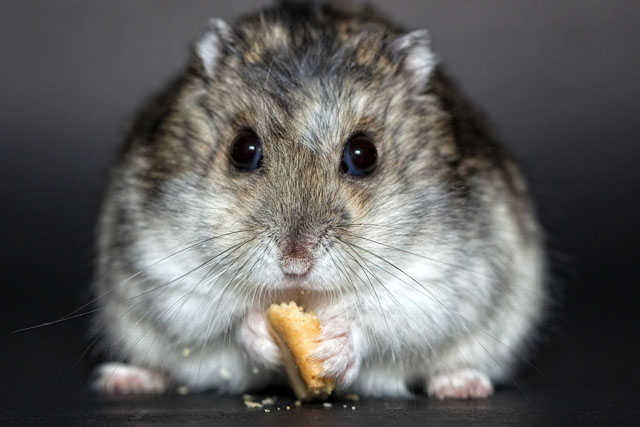



When it comes to the diet of Russian hamsters, it is important to provide them with a balanced and nutritious diet to ensure their overall health and well-being. These small rodents have specific dietary requirements that need to be met in order for them to thrive.
What do Russian hamsters eat? Russian hamsters are omnivores, which means they eat both plant-based and animal-based foods. Their diet should consist of a variety of foods to ensure they receive all the necessary nutrients.
One of the easiest ways to provide a balanced diet for your Russian hamster is by feeding them commercial hamster food. These specially formulated pellets or mixes are designed to meet the nutritional needs of hamsters.
What do Russian hamsters eat in terms of commercial food? Look for a high-quality hamster food that contains a mix of grains, seeds, and dried fruits and vegetables. Avoid foods that contain a lot of fillers or artificial additives.
In addition to commercial hamster food, it is important to supplement your Russian hamster's diet with fresh fruits and vegetables. These provide important vitamins and minerals that may be lacking in their regular diet.
What do Russian hamsters eat in terms of fruits and vegetables? Some safe options include apples, carrots, broccoli, spinach, and cucumbers. Make sure to wash the fruits and vegetables thoroughly before feeding them to your hamster.
Protein is an essential part of a Russian hamster's diet, as it helps support their growth and development. It is important to provide them with a variety of protein sources to ensure they receive all the necessary amino acids.
What do Russian hamsters eat in terms of protein? Some good sources of protein for hamsters include cooked chicken, boiled eggs, mealworms, and tofu. Make sure to offer these foods in small, bite-sized pieces.
While treats should be given sparingly, they can be a fun way to provide some variety in your Russian hamster's diet. However, it is important to choose treats that are safe and healthy for them.
What do Russian hamsters eat as treats? Some safe options include small pieces of unsalted nuts, dried fruits, and yogurt drops. Avoid giving them sugary or fatty treats, as these can lead to health problems.
In addition to treats, some hamsters may benefit from certain supplements. However, it is important to consult with a veterinarian before adding any supplements to your hamster's diet.
Water is essential for a Russian hamster's overall health and hydration. Make sure to provide them with fresh, clean water at all times. You can use a water bottle with a sipper tube attached to the cage for easy access.
What do Russian hamsters drink? Avoid giving them sugary drinks or juices, as these can be harmful to their health. Stick to plain water as their main source of hydration.
While there are many foods that are safe and healthy for Russian hamsters to eat, there are also some foods that should be avoided as they can be toxic or harmful to their health.
What do Russian hamsters not eat? Some foods to avoid include chocolate, caffeine, onions, garlic, citrus fruits, and foods that are high in sugar or salt. These can cause digestive issues or even be toxic to hamsters.
Establishing a feeding schedule and practicing portion control is important to ensure your Russian hamster maintains a healthy weight and receives the right amount of nutrients.
What do Russian hamsters eat in terms of feeding schedule? It is recommended to feed your hamster once a day, in the evening, as they are nocturnal animals. Offer them a small amount of food, about 1-2 tablespoons, and remove any uneaten food after a few hours.
It is important to monitor your Russian hamster's diet and make adjustments as needed. Keep an eye on their weight, overall health, and digestion to ensure they are receiving the right balance of nutrients.
What do Russian hamsters eat if they have specific dietary needs? If your hamster has specific dietary needs or health issues, it is best to consult with a veterinarian who can provide guidance on the best diet for your pet.
In conclusion, Russian hamsters have specific dietary requirements that need to be met in order for them to thrive. Their diet should consist of a balanced mix of commercial hamster food, fresh fruits and vegetables, protein sources, and occasional treats. It is important to provide them with fresh, clean water at all times and avoid feeding them foods that are toxic or harmful to their health. By following these guidelines and monitoring their diet, you can ensure that your Russian hamster stays healthy and happy.
Leave a Reply
Related posts